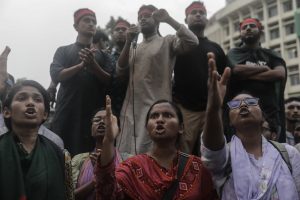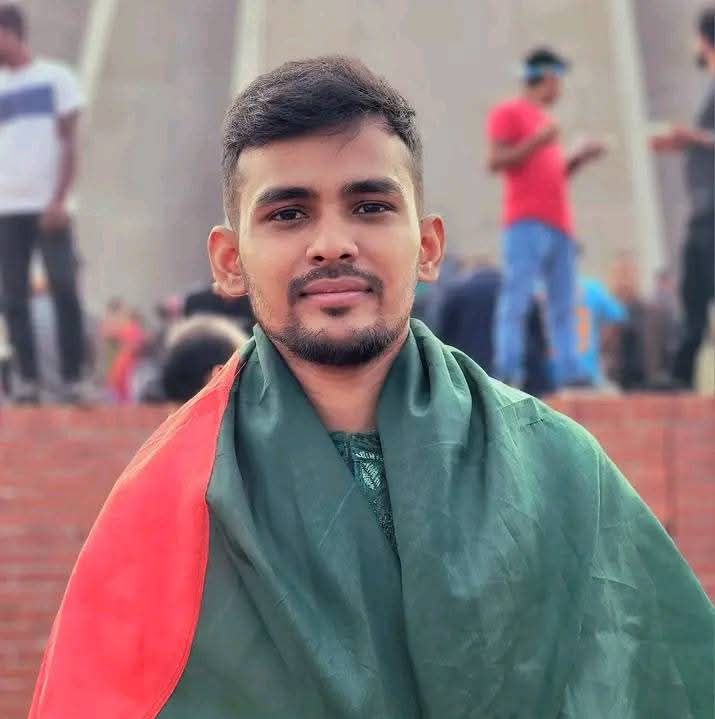“June 5, 2024, noon. I was getting my scooter repaired at a garage near Dhaka Medical College at Chankharpul. While waiting, I saw on Facebook that the High Court had reinstated the quota system in government jobs through a writ verdict.
“After years of political struggle since 2018, we had achieved several victories. Seeing this news, I felt our fight for rights was being rendered meaningless. There were reasons for this feeling,” recounts Asif Mahmud Shojib Bhuiyan, a key figure of the July Uprising and current Local Government Adviser, in his memoir.
A leader of the Anti-Discrimination Student Movement that spearheaded the July Uprising, Bhuiya documented the uprising’s chronology in his book July: Motherland or Death (published by Prothoma in March), revealing untold stories of those blood-soaked turbulent days.
In the first chapter “Call to Movement,” he writes: “After Abrar Fahad’s martyrdom, student protests led to the ban on student politics at BUET. Since no other student organizations were active there, this effectively banned Chhatra League politics. But recently, a High Court verdict reversed even that. It felt like after the dummy election on January 7, 2024, Awami League had reemerged stronger, reclaiming all it had lost.
“This was deeply painful. Our hard-won gains were being erased. During the 2018 quota reform movement, I was a first-year DU student. Back then, abolishing quotas for 1st and 2nd class jobs was a major victory.

“Abrar’s sacrifice had banned student politics (read: Chhatra League) at BUET – another achievement of our struggle. Now, these were being undone one by one. After the uncontested January 7 elections, Sheikh Hasina had consolidated absolute power.”
Bhuiya explains the backdrop of student mobilisation: “It felt like we were facing total defeat. Political parties kept failing to restore democracy. The slogan ‘Movement after Eid’ had become a mockery. Our democratic struggle against fascism and autocracy was being cornered.
“The moment I saw the quota reinstatement verdict on June 5, I posted on Facebook: ‘Our achievements are being erased one by one, and Awami League is emerging as an even greater monster.’ Soon, Abdul Hannan Masud (now a key organiser of the Anti-Discrimination Movement and NCP leader) called me: ‘Bhai, can we do something?’
“That evening, Bhuiyan and other leaders (including Nahid Islam) gathered at DU’s Central Library. “We decided on an immediate protest. Typically, smaller gatherings are held in the evening to mask low turnout, but that day, 500-600 students joined spontaneously. We formed a core group of 25-30 volunteers and strategised to expand the movement.”
He details their tactical approach: “As a small organisation, we were vulnerable to targeting. So, we kept known faces behind the scenes, using less-recognised activists to avoid ‘tagging’ (being labeled as Shibir, extremists, etc.).
“Our initial demand was reinstating the 2018 notification, but we later broadened it to include all job classes to mobilise more students from national universities and colleges.
“Knowing campuses would soon close for Eid-ul-Adha, we focused on online outreach. On June 5, Hasib and Rifat created the Facebook group ‘We Reject Quota Reinstatement,’ which rapidly gained traction as DU’s mainstream groups were controlled by Chhatra League,” Bhuiya adds, highlighting their grassroots digital strategy.


